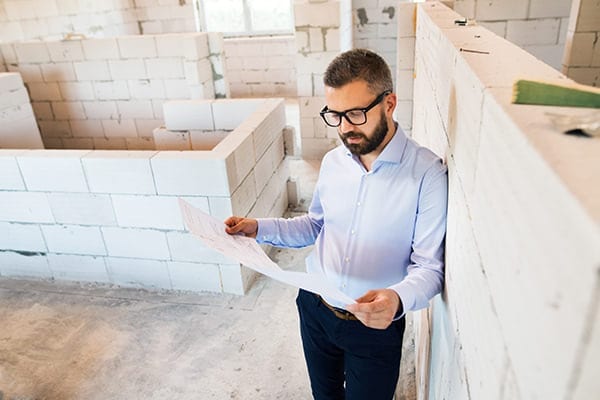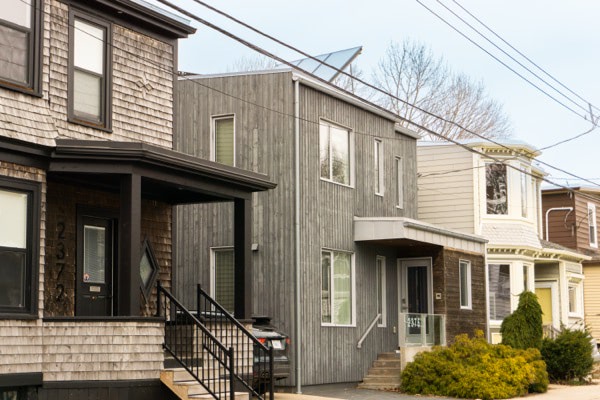How fast can you pay your mortgage off? Can you speed up the process? Here’s what you need to know!

Everything to know about construction mortgages
Are you planning on building your own home? This is an exciting and bold experience that appeals to a lot of people. It provides an opportunity for creativity, and a fresh start. There’s nothing wrong with moving into an existing home, but for some people, building their own unique home is the way to go! Now, if this sounds like you, you might be wondering how this process differs from purchasing an existing house. Naturally, there are some noticeable differences between the two experiences. Unlike buying a pre-built home, building your own home means you’ll be dealing with construction mortgages.
What exactly is a construction mortgage?
The basic definition is easy enough to understand, even if the process is a little complex. A construction mortgage is just the type of loan you’ll receive when you build your own home. Instead of having a mortgage on the house itself, you’re getting a mortgage on the costs of building the home. You can find more details on construction mortgages here.
How is the process different?
The route property owners take with a construction mortgage is quite different from a traditional mortgage. When you build a new home, a construction mortgage is loaned to you in stages. In other words, you’ll receive the full amount of the loan over time, not in one big chunk. These are called “draws” and the lender provides them to you at specific points in the building process.
It’s common for lenders to provide four draws during the construction mortgage process. Lenders may have slightly different schedules they follow, but there are often points all lenders have in common. For example:
- The first advance is usually for basic foundation work, which takes up about 15 per cent of the total costs.
- The second advance represents 40 per cent of total costs and covers roof and wall installation.
- Drywall and plumbing are completed in the third advance. The project is about 70 per cent complete at this point.
- Finally, the fourth advance occurs when your home is complete.
Larger projects might require more draws to space out the loan better. Also, inspectors will look at the property to see how each stage is being completed before the lender provides funds.
Risks for the lender
Not all lenders provide construction mortgages. This is because the process is more complicated, and it’s a higher risk. Since the home isn’t already complete, this means there is a bigger chance of errors and incidents during construction. This can cost lenders a lot of money. Lenders also run the risk of borrowers defaulting on their loan. A lender might then be stuck with a half-finished home on their hands.
Lenders usually have higher rates for construction mortgages based on these risks. These rates will vary with each lender. However, you can probably expect to pay at least one per cent more than you would with a traditional mortgage. These mortgages are also usually short-term, so you need to make sure you can pay it off in this smaller time frame.
Other tips to keep in mind
Price
Generally speaking, construction mortgages are more expensive than a mortgage on an existing home. Of course, this ties in with the previous point about higher interest rates to balance out risk for the lender. You’ll also likely need a larger down payment, which will cost you more upfront (more on that below).
Apart from the mortgage itself, remember that building a home requires extra costs to pay for materials and builders. Building your own home can be a great experience, but it will likely be a more pricey one.
Qualification & down payment
Qualifying for a construction mortgage is trickier than a traditional one. Lenders often want more reassurance about your financial situation before they’ll approve a loan for you. This means you might need a higher credit score, or a bigger down payment. The minimum down payment is 5%, and this comes from the value of the land. It’s best for you to have 25 per cent of the build costs to float the draws, however. If you don’t think you can handle these obstacles, a construction loan might not be your best option.
Talk to a broker
Construction mortgages can be a confusing process with many avenues. An unbiased mortgage broker has access to a bunch of different lenders, and they can help you determine what the best path forward might be for you. Brokers understand the process and can guide you without pushing you in a direction that won’t work for you. Remember, unbiased brokers work for the client!
If you have questions about construction mortgages, and want to see if it’s a good option for you, contact us at Clinton Wilkins Mortgage Team! You can call us at 902-482-2770 or get in touch with us here.


